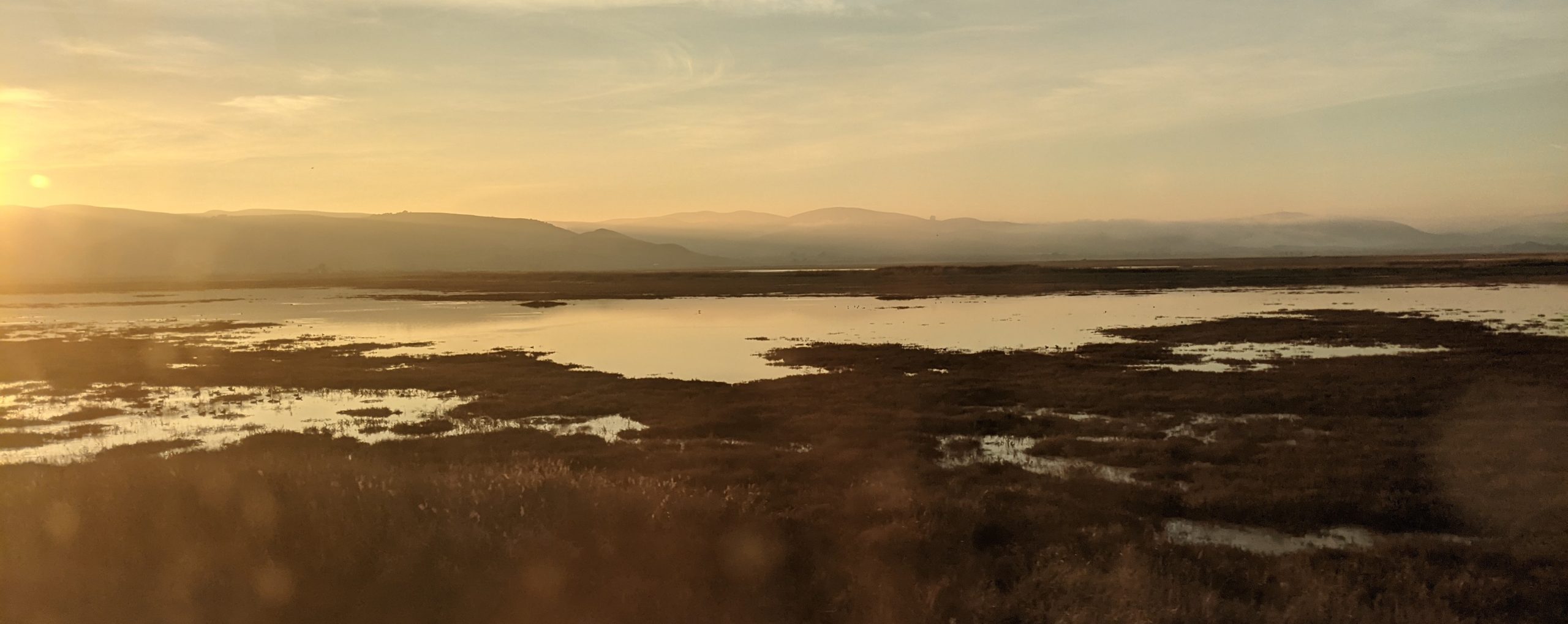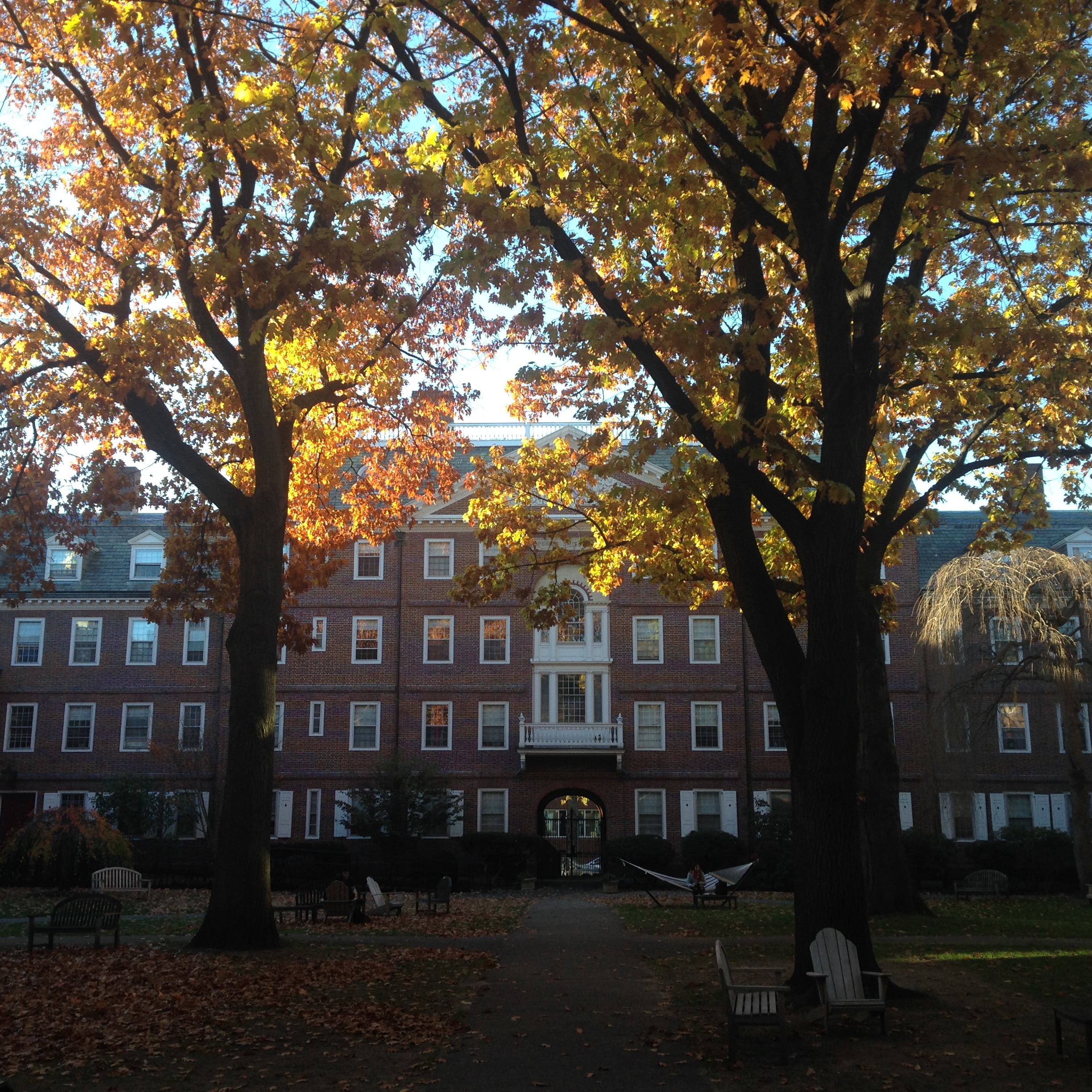“The most beautiful things at Harvard are invisible and silent,” I wrote in October of our freshman year: “the thoughts of the people and the books whisper inaudibly through the bricks; the veil of conversation leaks out shimmers of truth….the world keeps turning like a fast-forward video…”
I’d only once felt as happy as I did my freshman fall here, and that was when I lived in Scotland in middle school. It was so transient that I, even while young, could feel the time slip away. When I left Scotland, I was devastated. As a 13-year-old, I wrote love poetry not to boys or to girls, but to a country. I learned about how precious a place could be, I learned about awe and wonder, and I learned about the process of saying goodbye.
When you say goodbye to a place you love, you take it with you in two ways. First, you think.
You think of the bad parts — you think of your bitter and unhappy experiences— and you ask, “How can this place be better?” You act towards improving it for those that come after. The same problems exist in Harvard that did in elementary and middle and high school, except on a larger scale, with more wide-reaching consequences. Socioeconomic inequality. Focus on success over relationships. Bureaucratic incompetence. Pettiness. Sexism. Overwork. The same problems exist at Harvard that exist in the world. And if you love something, you think about how to fix what is broken.
The second part of saying goodbye is feeling.
You feel and internalize the parts you love: rowing on the Charles on a warm autumn day… slowly turning on the golden lamps in Kirkland House library… debating policy in the dining hall, discussing social theory on Thursday afternoons, filming Arabic videos with giant stuffed animals… laughing in the yard on late-summer nights.
Specific memories will fade, but you remember the atmosphere of learning, of being surrounded by friends, of absorbing so much knowledge and light and truth that you thought you were infinite.
Of course, though, there is no dualism of the mind and the soul. It’s impossible to separate our rational and emotional natures, or the good and the bad.
In saying goodbye, you think of the positives, too, of all you’ve learned and how you can spread that to the world. And you still feel the negatives: the rejections, the loneliness, and the times you cried all night.
You’re both the person who loathes Harvard’s exclusivity and elitism and inequality, and the person who loves fancy cheeses and formals and access to more books than you could ever read. You are the person who feels that Harvard could do better— in providing opportunities for low-income students, or protecting freedom of speech for conservatives, or supporting mental health… and you are the person who thinks Harvard is the most wonderful place in the world.
You might be writing love letters to Harvard — or angry Crimson op-eds — forever. And that’s great! Just make sure that this goodbye is only one of many; that it is as multi-faceted and forward-looking as you are, in a world that keeps turning like a fast-forward video. Harvard will always be part of you, but only one part; just as thinking and feeling and doing are only parts of you.
You are expansive enough to question ideas and to change systems and yet to wonder at how beautiful the world is. You are old enough to feel time slipping away, and yet young enough to burst with excitement about the future. You can be content with the amount of time you had before graduation…
Yet you are big enough to spend your whole life saying goodbye, to hold all of the goodbyes in your life at once, thinking and feeling and letting them build you into a complete whole.
I would like to end with this. In our goodbyes to Harvard, we need to both remember and to feel the wonder of how we said hello.
We danced for hours without becoming tired;
We talked in rainbow-coloured chairs until dawn;
We lapped up all knowledge until we and it became inseparable.
We wondered at the trees changing color; we saw leaves fall from branches like rain.
As we say goodbye to Harvard, we should re-open our senses to its truths both invisible and silent— as if it, and we, were new.

